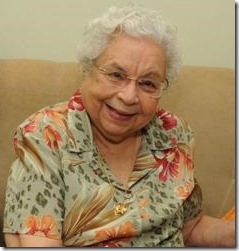For about a century, since dropping anchor in Chennai, the Clubwala family has been credited with founding several institutions in the city. “Hugging,” says 87-year-old Mani Clubwalla, is one she would like to take credit for.
Article by Kamini Mathai | Times of India
When Mani and her husband first moved to the city in 1970, the Parsi community threw a dinner to welcome the new family in town, inviting members of other communities as well. “There were several Chettiar families who had come for the party and I decided to give everybody hearty kotis (hugs). The Chettiar women shrank back in what I think was a mix of fear and shock. That’s when I was told that in Chennai people were particular about their personal space,” laughs Mani, who stays on Santhome High Road.
While Mani chose to stay on in Santhome after her husband’s demise in 2002, her sons left for the US. “This is home. I can’t imagine being elsewhere,” she says. Jehangir was one of the several members of the Clubwala family who made a mark in Chennai.
Jehangir’s uncle Phiroj M Clubwala donated the Royapuram Fire Temple to the community in memory of his son, while Mani’s sister-in-law Mary Clubwala Jadhav founded the Madras School of Social Work in 1952. Mani, who was president of the National Association for the Blind, Tamil Nadu branch, is also credited with reviving the Parsi Club in 1980.
Mani and her husband decided to make Santhome their home 40 years ago because the area was far removed from the bustle of Royapuram where most of the Parsis stayed. “Land rates here were quite low and the area was quiet,” she says. After a moment’s pause, she adds, “In fact, most of the Parsis who came to Chennai on work never really left. The city had a lot of space unlike Mumbai, which was cramped even back then.” Her bungalow was the second one of its kind to come up on Karpagam Avenue, and the last few still standing in the area.
Around the same time the Clubwalas moved to south Chennai, several Parsi families seemed to have had the same idea as they moved out of Royapuram, settling down in areas such as Harrington Road, Royapettah, and Anna Nagar where real estate came cheap and neighbourhoods were quiet. The community, scattered by real estate investment, used the third Saturday of every month for a get-together that almost always involved feasting.
“We also have five gumbals or meets every year, hosted by one Parsi family. This is our way of making sure the community stays in touch. We are, after all, down to around 250 or so in the city,” says Mani. Describing Chennai as a `city of opportunity,’ Mani says it has been kind to every Parsi who has called it home. “I joke and say the city also turned every Parsi who lived here into a millionaire.”

